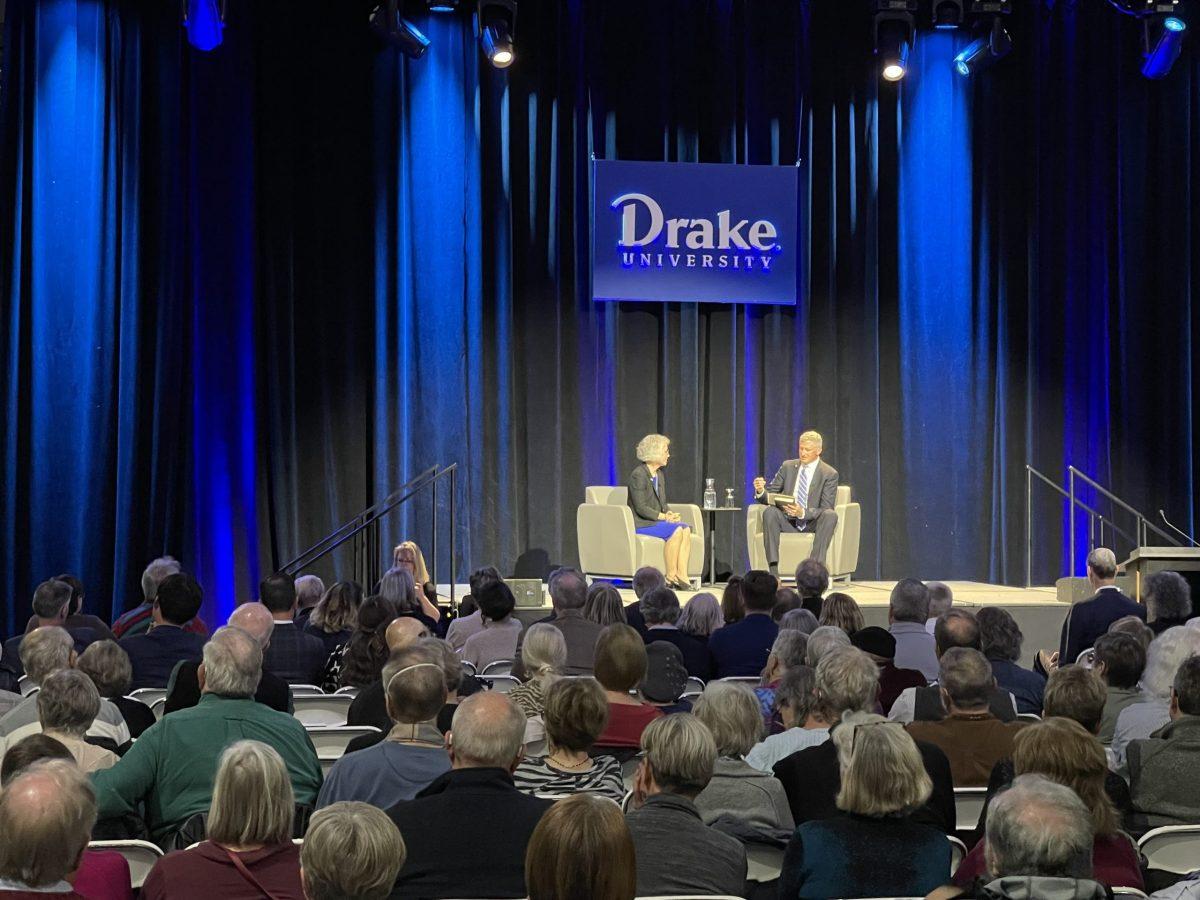Marie Yovanovitch delivered the 43rd installment of the Martin Bucksbaum Distinguished Lecture on Oct. 27 in the Knapp Center. She spent 34 years in the U.S. Foreign Service and served as ambassador to Kyrgyzstan, Armenia and Ukraine.
In 2019, she was removed as Ambassador to Ukraine by former president Donald Trump. Later that year she testified to a congressional committee as part of the impeachment proceedings of Trump.
In a discussion moderated by Drake alumnus Eric Shimp, Yovanovitch answered questions submitted by international relations and history students at Drake.
The discussion was dominated by the Russian invasion of Ukraine. Yovanovitch first provided a history of Russia from the Soviet Union to the rise of current president Vladimir Putin.
Drake history professor Dr. Natalie Bayer introduced the ambassador. Bayer grew up in the USSR and said she appreciated the complexity of Yovanovich’s explanation of the current conflict.
“She demonstrated an understanding of not just the political and economic large processes that were involved. She also talked about the people and how that affected the people,” Bayer said. “To me, that was important to hear.”
Yovanovitch was then asked about Putin and his intentions. She thinks that Putin is trying to rebuild the Russian empire based on his invasion of Georgia in 2008, the annexation of Crimea in 2014 and the current war in Ukraine.
“Even after all of the troubles the Russian military has had in Ukraine,” Yovanovich said. “He has made it clear that his appetite has not been saved enough in Ukraine and that he would go further.”
The invasion is in its eighth month, and Russia is facing an unexpected level of resistance from Ukraine. An initial objective was to swiftly capture the capital Kyiv, with troops reaching parts of the city’s suburbs. But the Russian military was unable to capture the city and after a month moved to other regions.
After Russian troops pulled back, Ukrainian forces found 458 civilians that had died at the hands of the Russian military. In a conversation earlier that day with students in the Cowles Library reading room, Yovanovich talked about the effect of the massacre.
“When Ukrainians discovered what had happened in Bucha – the rapes, the torture, the killings of civilians or children or people riding bicycles down the street – really a switch was flipped, where the population was like, ‘we cannot, we cannot negotiate with people. This is a country that is going to murder us all,’” Yovanovich said.
The war has also strengthened relations between western governments. The U.S. and Europe have been united in their aid to Ukraine and sanctions on the Russian government.
While any chance of ending the war will require negotiations with Russia, Yovanovitch said the key to diplomacy is timing and that now is not the time. She believes that Putin is not currently serious about peace.
“He will just use the time to regroup, rearm and reattack,” Yovanovich said.
The rest of the night focused on Yovanovitch’s experiences detailed in her book “Lessons From The Edge.” Topics included fighting corruption abroad and her decision to testify in President Trump’s impeachment hearings.
The entire lecture and other lectures in the Bucksbaum series are available as DVDs from the Cowles library.







